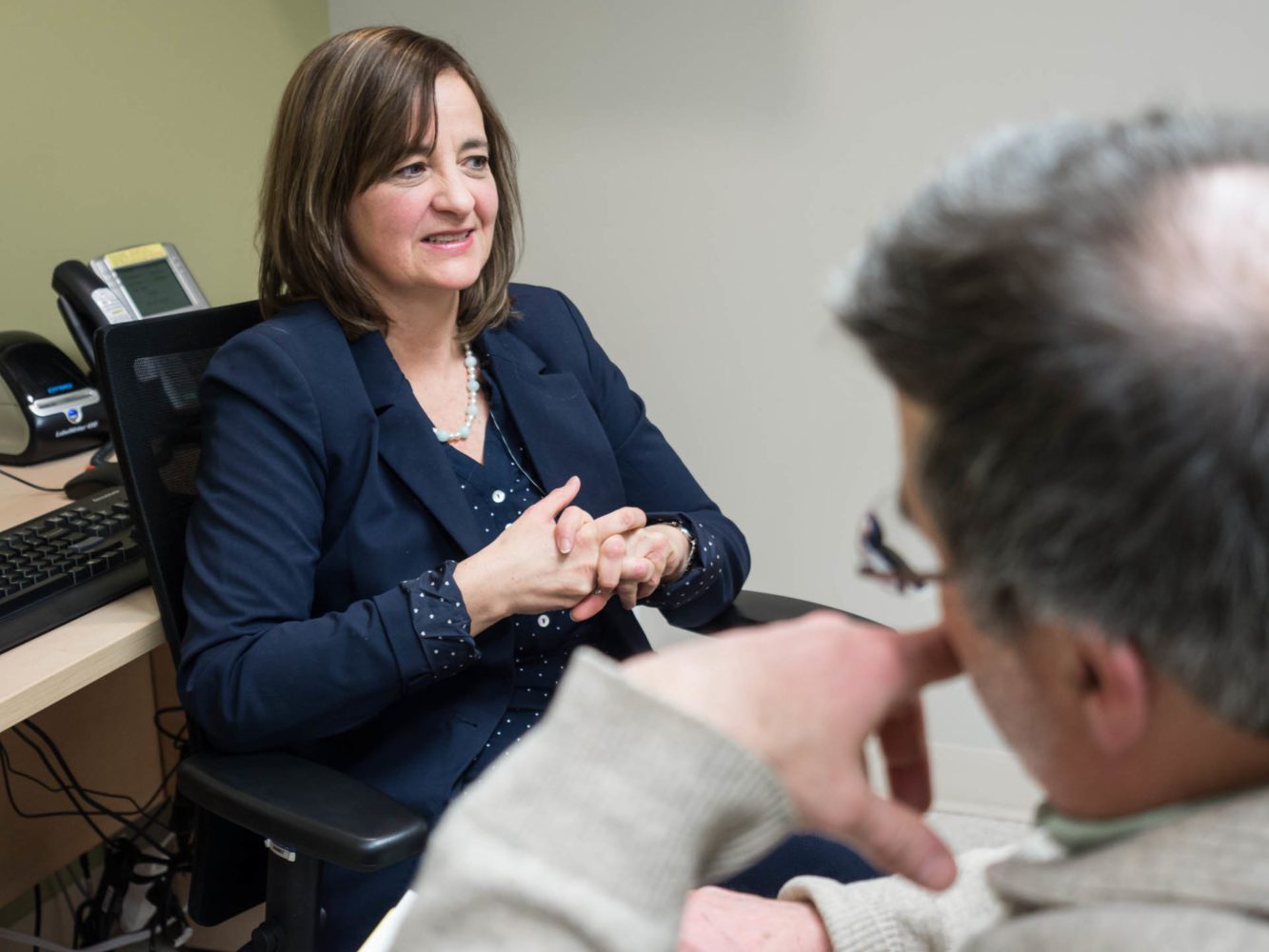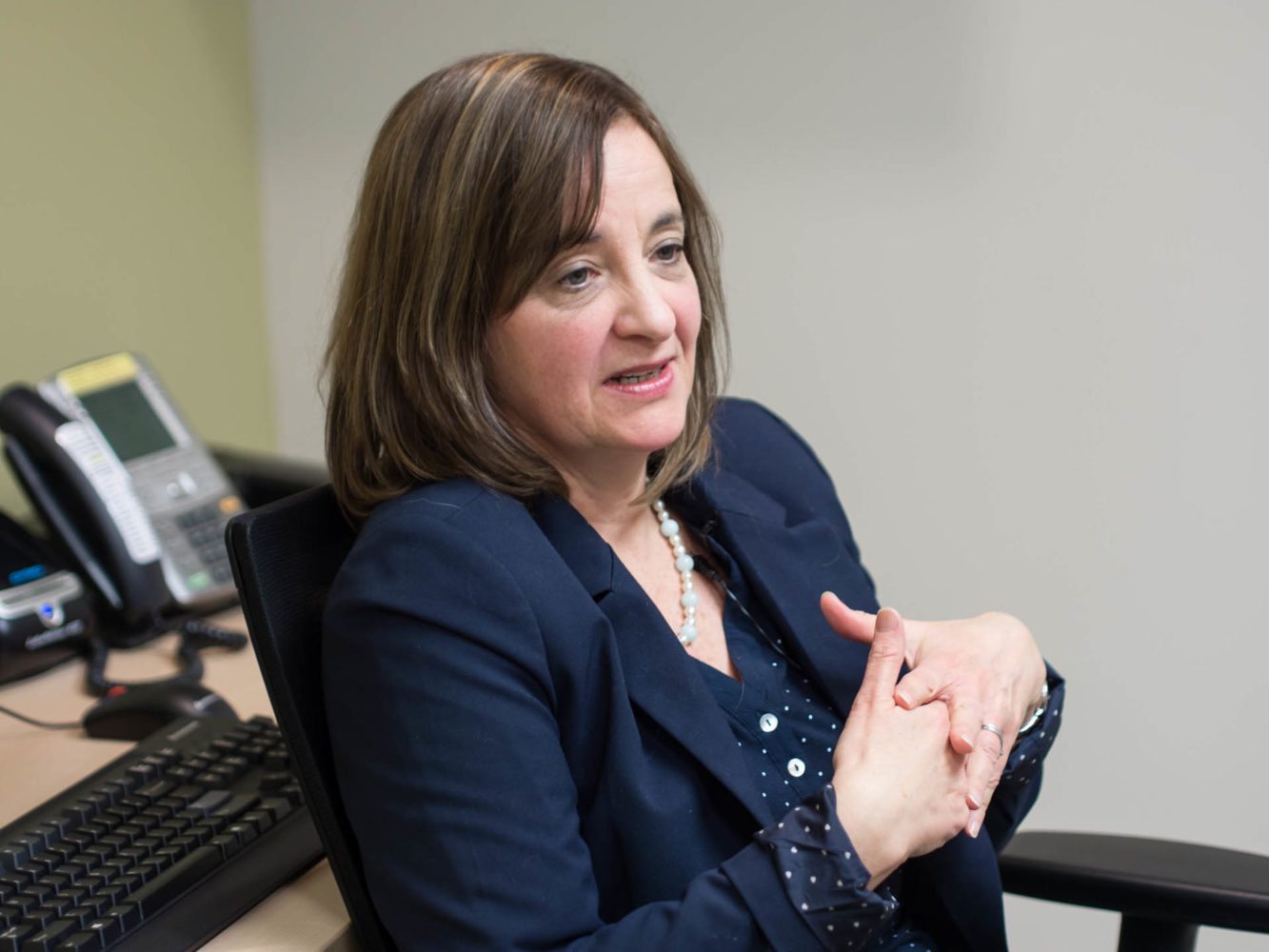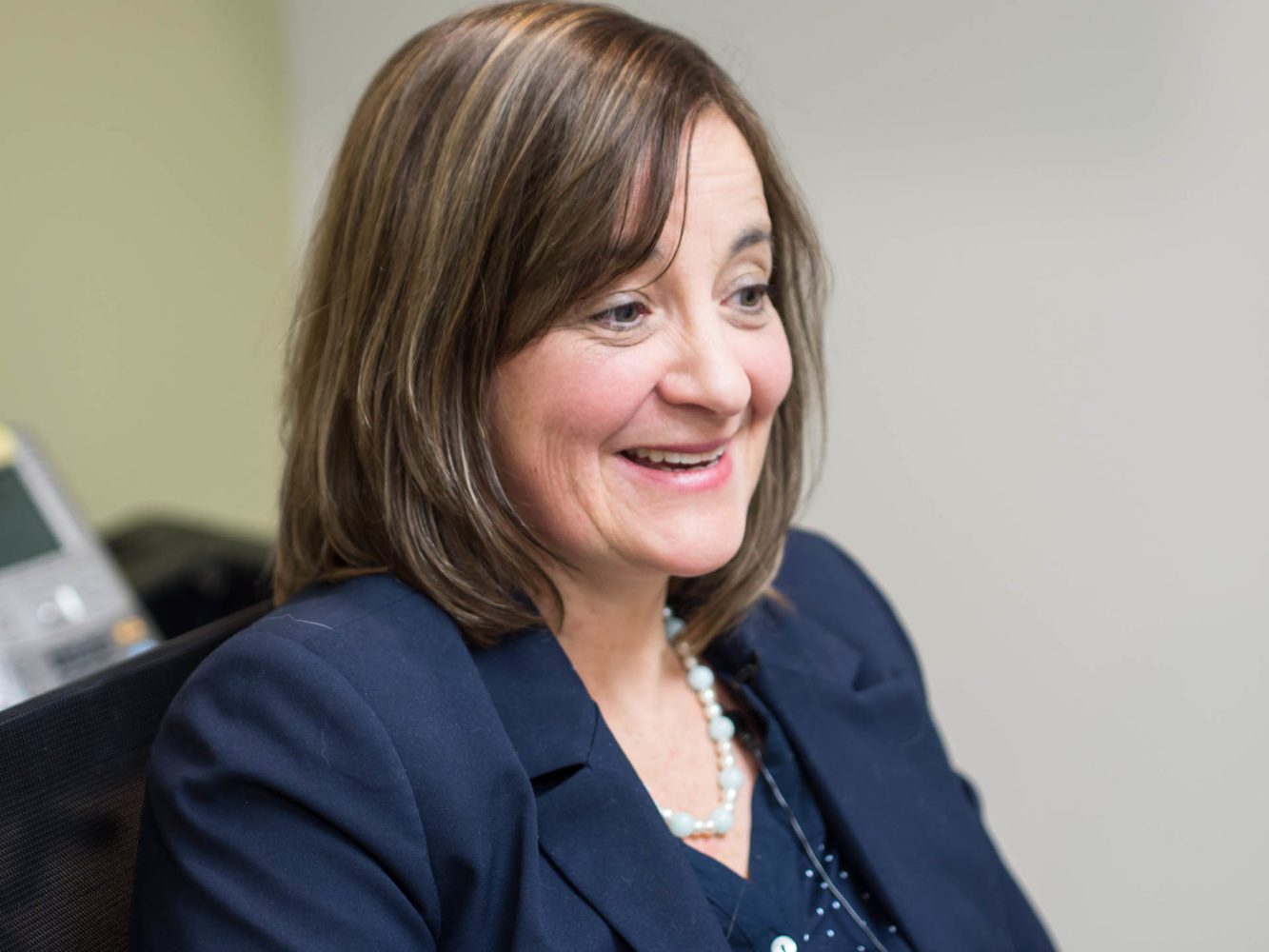Paula is a nurse practitioner at the Ottawa Newcomer Clinic, a program of Somerset West Community Health Centre. She shares how the clinic managed to provide vaccinations, dental care, screening and other health care services during the recent arrival of Syrian refugees.
“We see government-assisted refugees in this clinic. At the beginning, our services were very basic, mostly focused on getting clients up to date with immunizations. Over the last eight years we’ve really expanded. We welcome people when they first arrive and do an assessment to see if there’s any kind of urgent health needs. We do some screening based on where they’ve come from. For example, some women have never had a pap smear, so we do cervical cancer screening. I also do a “Well Women” clinic where we try to address unmet contraceptive needs.”
When the influx of Syrian refugees came, the numbers were so high that they had to open up three hotels. Some people stayed there for up to three months waiting for permanent housing. We set up a mini medical clinic in one of the hotel rooms and tried to look after their basic needs.
“Unfortunately people came in January, so a lot of them got the flu. We partnered with public health and got their nurses to give vaccinations. We also saw a lot of dental problems, both in kids and adults. We originally sent people on emergency visits to the dentist but there were so many people needing to see a dentist that we organized that through public health as well.”

What are the biggest challenges facing your clients?
“The language barrier is huge. The little kids end up in school and are speaking English way before their parents. Finding employment can be very tough, especially with the language barrier.”
The really hard thing is when people have left their extended family behind. They are happy to be here, they are grateful, they feel safe, but they’re worried about their family. Some people lose contact with family members and that’s very difficult for them. Maybe they were killed, but they are not sure.
“When I meet people that have had such huge challenges, it is humbling to see how resilient they are. How hopeful they are for the future. I just saw a teenage girl, probably around 18. I met her and her family in the hotel when she first came. We did a little bit of screening and found that she couldn’t see the blackboard! She had never had glasses. And today she had nice new glasses and was quite thrilled. Those things impact me because we take for granted here in Canada that if you have trouble seeing at school, you will be able to get glasses.”

“The Syrian group came with a lot of children with disabilities. That was certainly very challenging for us. A woman I met in the hotel had an eight-year-old who had cerebral palsy. She wanted to come to Canada because she thought her daughter would be cured. It was really difficult for us to assure her that her daughter was going to get some services and physiotherapy, but she wasn’t going to be cured. Her expectations were unfortunately unrealistic. Her family was displaced for close to five years and her daughter was quite young and even though she got a diagnosis maybe she didn’t quite understand the long-term effects.”
“The same girl was on medications for seizures and had a period of time in the camp where she couldn’t access medications, so the seizures came back. That was hard to hear about.”
“When refugees first come there’s so much for them to do in the first few months. And they are so relieved to be in a safe place. Sometimes the more difficult things around mental health don’t happen until later. At the beginning there are some very high hopes and expectations. After six months quite a few still haven’t learned the language and they are still having difficulty finding work.”
Then sometimes they start getting discouraged. Usually we reconnect around six months to check in around those issues. Employment is very hard for many people. It’s a reality that some people that come may never speak English. A lot of these folks really come for their children. They want their children to have a better life.

“I find this job very rewarding. To see what people have come from, and their ability to move forward, is humbling. I find it interesting to meet people from all over the world. I am always impressed by people I meet that have three or four languages and I have one. And it’s a new beginning for many kids, some of who never went to school. I saw a family today and mentioned to the mom that they were lucky to have the kids off school for a couple of weeks over the holidays. And she said that her six-year-old daughter was crying because she couldn’t go to school.”
“When I hear people in the media who are against admitting refugees, I feel that’s a disheartening approach. Because we really are a very rich country and we should offer help to these people.”
When I listen to people saying, ‘Oh, they are getting golden healthcare,’ it really isn’t the truth. They are getting the basic healthcare that most of us are very fortunate to have. I think we can share our resources with people in need. We have so much.


The comments section is closed.